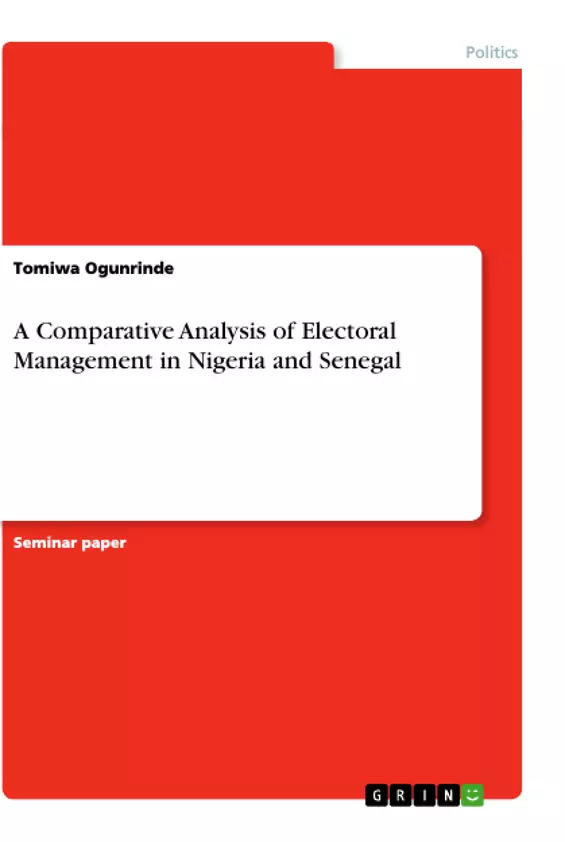The institution responsible for electoral management is called electoral management body. They are solely responsible for organising an election with the assistance of other government bodies, most importantly, the Police. This paper aimed at making a comparative analysis of the different systems (Nigeria and Cameroon) of election management through institutions called Electoral Commissions. A qualitative study, data were sourced from secondary sources. The study tried to identify some trends.
In the word of Fukuyama (1992), democracy is the “endpoint of man’s ideological evolution”. At the end of Cold War, the world saw transition of hitherto authoritarian military/ monarchical states to democracy. Between 1990 and 1994, about thirty of one forty-one African states that had not held multiple party elections did so. Eligible citizens expressed their right to air their opinion through voting on who they so desire to govern them. It is not only in national elections that voting has a special importance, but also in many institutions, private and public domains. As experience has shown so far in many of these countries, elections become not day activity, rather they are complex set of activities with different variables that act and feed on one another.
Inhaltsverzeichnis (Table of Contents)
- Abstract
- Introduction
- Methodology
- Conceptual Review
- The Concept of Election
- Election Management and Election Management Bodies
- Theoretical Framework
- Discussion and Findings
- Statutes of Electoral Commissions
- What kind of judgment can be made on all these different systems?
- Tenure of members and duration of the Commission
- Operations of Electoral Commissions
- Financial System
- Evaluating the experiences of Electoral Commissions
- Conclusion and recommendations
- REFERENCES
Zielsetzung und Themenschwerpunkte (Objectives and Key Themes)
This paper aims to conduct a comparative analysis of the electoral management systems in Nigeria and Cameroon, focusing on institutions called Electoral Commissions. The study utilizes a qualitative approach, drawing data from secondary sources. It seeks to identify trends and patterns in the composition, operation, and financing of these electoral bodies, while exploring the challenges they face in conducting free and fair elections.
- Comparative analysis of electoral management systems in Nigeria and Cameroon
- Role of Electoral Commissions in election management
- Challenges to conducting free and fair elections
- Composition, operation, and financing of Electoral Commissions
- Trends and patterns in electoral management practices
Zusammenfassung der Kapitel (Chapter Summaries)
The paper begins with an overview of the concept of election and its significance in representative democracies. It then delves into the complexities of election management, highlighting the importance of specialized institutions like Electoral Commissions. The abstract introduces the study's objective, methodology, and key findings.
The introduction explores the global trend towards democratization, particularly in Africa, and emphasizes the crucial role of elections in this process. It further discusses the inherent challenges of election management, emphasizing the need for credible, free, and fair elections.
The methodology chapter outlines the qualitative approach employed in the study, specifying the data sources and analytical techniques used to compare and analyze the information.
The conceptual review section provides a detailed examination of the concept of election, exploring its historical context, contemporary interpretations, and essential elements. It also defines the term "election management" and discusses the role of Electoral Management Bodies (EMBs).
Schlüsselwörter (Keywords)
The paper focuses on the key themes of electoral management, comparative analysis, Electoral Commissions, free and fair elections, democracy, democratization, election administration, and qualitative research. It explores the challenges and complexities associated with these themes, particularly in the context of Nigeria and Cameroon.
- Citation du texte
- Tomiwa Ogunrinde (Auteur), 2020, A Comparative Analysis of Electoral Management in Nigeria and Senegal, Munich, GRIN Verlag, https://www.grin.com/document/1036919



